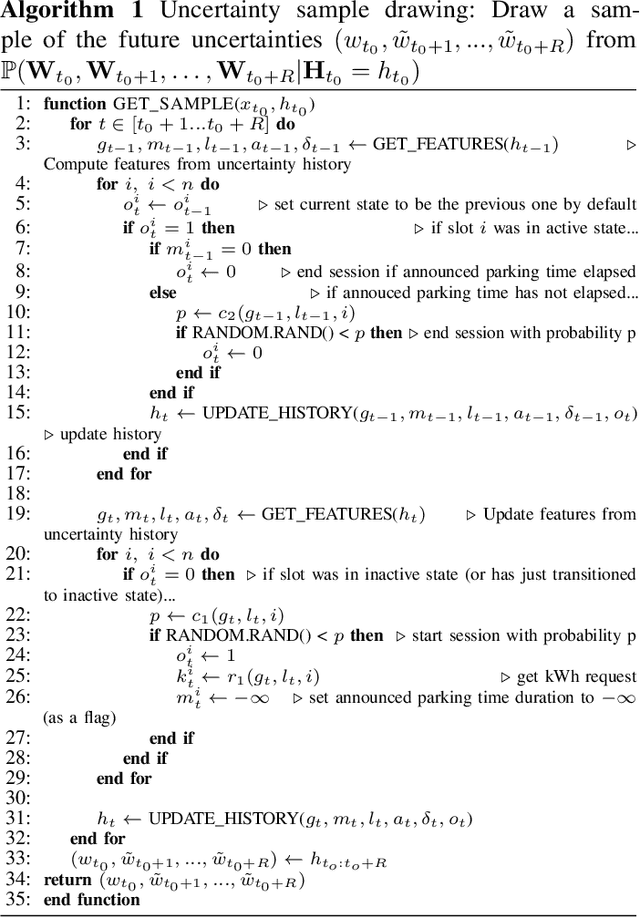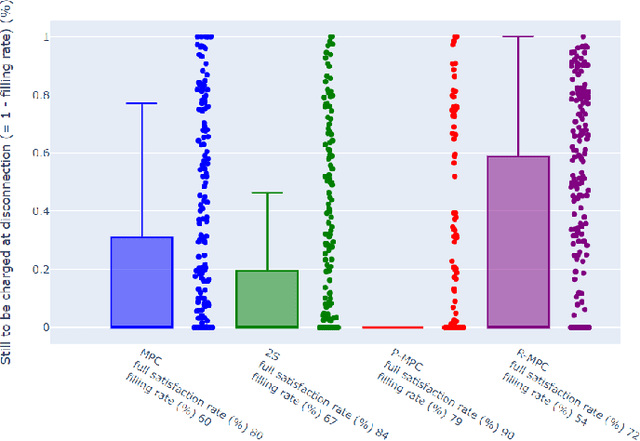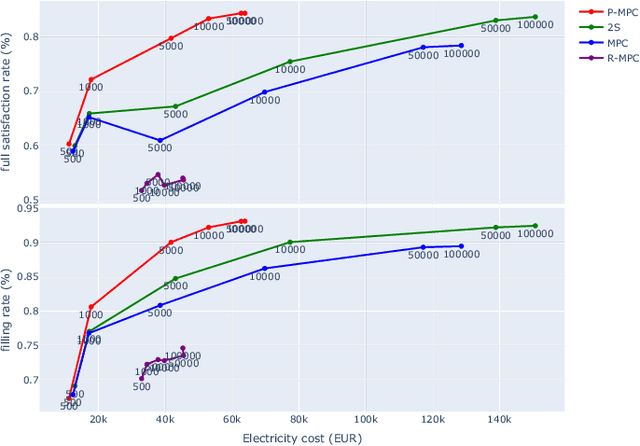Tristan Rigaut
Controlling Large Electric Vehicle Charging Stations via User Behavior Modeling and Stochastic Programming
Feb 21, 2024



Abstract:This paper introduces an Electric Vehicle Charging Station (EVCS) model that incorporates real-world constraints, such as slot power limitations, contract threshold overruns penalties, or early disconnections of electric vehicles (EVs). We propose a formulation of the problem of EVCS control under uncertainty, and implement two Multi-Stage Stochastic Programming approaches that leverage user-provided information, namely, Model Predictive Control and Two-Stage Stochastic Programming. The model addresses uncertainties in charging session start and end times, as well as in energy demand. A user's behavior model based on a sojourn-time-dependent stochastic process enhances cost reduction while maintaining customer satisfaction. The benefits of the two proposed methods are showcased against two baselines over a 22-day simulation using a real-world dataset. The two-stage approach proves robust against early disconnections, considering a more significant number of uncertainty scenarios for optimization. The algorithm prioritizing user satisfaction over electricity cost achieves a 20% and 36% improvement in two user satisfaction metrics compared to an industry-standard baseline. Additionally, the algorithm striking the best balance between cost and user satisfaction exhibits a mere 3% relative cost increase compared to the theoretically optimal baseline - for which the nonanticipativity constraint is relaxed - while attaining 94% and 84% of the user satisfaction performance in the two used satisfaction metrics.
 Add to Chrome
Add to Chrome Add to Firefox
Add to Firefox Add to Edge
Add to Edge